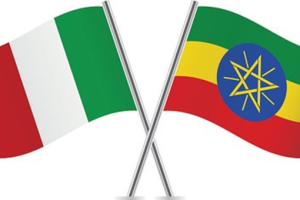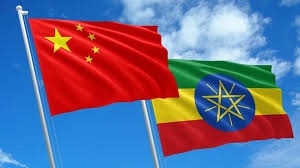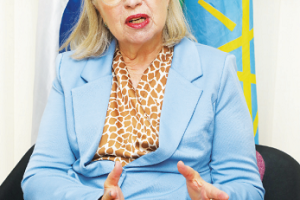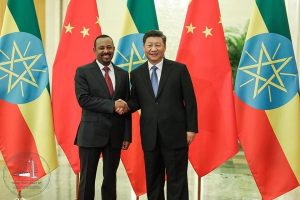
Ethiopia and Russia have enjoyed a longstanding and multifaceted relationship that dates back centuries. The cultural ties between these two nations have evolved and deepened over time, showcasing a rich tapestry of shared experiences, mutual understanding, and strategic cooperation.
In the 19th and early 20th centuries, as both nations navigated complex geopolitical landscapes, the cultural and diplomatic links between Addis Ababa and Moscow strengthened further. Russian intellectuals and travellers became increasingly fascinated by the former’s ancient heritage, unique culture, and strategic location. Likewise, Ethiopian leaders saw Russia as a potential counterweight to European colonial powers that sought to exert their influence in the Horn of Africa.
The cultural exchange between Ethiopia and Russia has manifested in various forms over the decades. Prominent Ethiopian intellectuals, artists, and religious figures have visited Russia, fostering deeper mutual understanding and appreciation. Similarly, Russian academics, musicians, and cultural delegations have made a journey to Ethiopia, engaging with their counterparts and immersing themselves in the country’s vibrant traditions.
In an exclusive interview with The Ethiopian Herald, the Director of the Russian Center for Science and Culture (The Pushkin Center), Alexander Evstigneev, stated that, flourishing cultural diplomacy between Russia and Ethiopia started just months before the end of World War II, demonstrating the USSR’s dedication to cultivating strong cultural ties with Ethiopia and the longstanding ties between the two nations.
“The Pushkin Center was built in 1969. And all this time, our cultural events and our educational events are going on without bricks,” he noted, emphasizing the Pushkin Center’s crucial role in continuing to play a vital part in fostering mutual understanding and cooperation.
Educational and academic collaboration have also been significant aspects of the Ethiopia-Russia relationship. A lot of Ethiopian students have studied at Russian universities, gaining valuable knowledge and skills. This educational exchange has contributed to the development of professional and personal ties between the two nations.
Over the years, the centre has hosted significant events, from concerts and exhibitions to academic conferences, all aimed at deepening mutual understanding between the two countries. He highlighted the growing popularity of Russian language courses at the centre, with the number of Ethiopian participants increasing from around 40 last year to over 60 this year.
The Pushkin Center’s role as a facilitator of educational exchanges has also expanded significantly. The director revealed that the number of Ethiopian students studying in Russia has more than doubled, from 35 last year to 100 this year, under the scholarship program.
The exchange of cultural knowledge and understanding between countries is vital for fostering strong international ties and cooperation. As the director highlighted, when young people from Ethiopia travel to study in Russia, it provides them with invaluable insights into the country’s history, traditions, and way of life. This deep engagement allows them to develop cultural ties between the two countries.
In the case of the educational exchange between Ethiopia and Russia, the benefits flow between both countries. Russian students attending Amharic language courses in Moscow schools are allowed to engage directly with Ethiopian culture. This language learning provides a gateway to understanding Ethiopia’s history, customs, arts, literature, and other traditions.
Similarly, Ethiopian students studying in Russia gain crucial awareness about the culture, politics, and business environment of Russia. This cross-cultural exchange fosters mutual respect and understanding that can pay off well into the future. These students are becoming familiar with one another’s countries and will facilitate stronger economic, diplomatic, and cultural ties between Ethiopia and Russia, he noted.
Furthermore, the cultural and religious connections between Russia and Ethiopia run deep, serving as a foundation for their ongoing partnership. Both nations share a long history of Orthodox Christian traditions, which have profoundly shaped their respective societies,
The director emphasized the deep religious and cultural ties between the two countries, noting that both Russia and Ethiopia have the same long tradition of religious practices like Orthodox Christianity, which has been a central part of both nations’ identities for centuries. So, “we try to demonstrate it,” he stated.
This common religious foundation has fostered a profound cultural similarity between the two countries. Orthodox worship, architecture, and spiritual traditions have profoundly shaped the artistic, intellectual, and social fabric of both Ethiopia and Russia. For instance, the iconic onion-domed churches of Russia share striking similarities with the rock-hewn churches of Lalibela in Ethiopia, demonstrating the cross-pollination of Orthodox Christian aesthetics.
By highlighting these common religious and cultural roots, the director stated that the Pushkin Center is attempting to further strengthen the bonds between the two countries. This emphasis on common heritage and values helps to foster greater mutual understanding, respect, and collaboration. Through various initiatives that showcase their parallel spiritual and cultural legacies, Ethiopia and Russia reaffirm the strength of the ties that link them, paving the way for even stronger bilateral relations in the years to come.
Beyond just religious ties, Russia and Ethiopia also have a long history of political, economic, and diplomatic cooperation that dates back to the 19th century. The two countries have often found themselves aligned on the global stage, collaborating on issues of mutual interest and supporting each other’s sovereignty and territorial integrity.
It is known that Russia has provided crucial military support to Ethiopia over the years. During times of regional tensions and conflicts, Russia has stood by Ethiopia, supplying weapons, training, and strategic advice. This military cooperation has been instrumental in bolstering Ethiopia’s defense against external threats and internal rebellions.
During the Cold War era, the Soviet Union provided significant military and economic assistance to Ethiopia during the Ogaden War, particularly under the Marxist Derg regime in the 1970s and 1980s. This included the supply of weapons, military advisors, and training to the Ethiopian armed forces. This assistance helped Ethiopia prevent the Somali invasion and solidified the strategic partnership between the two nations.
Today, the Ethiopia-Russia relationship encompasses a wide range of areas, including trade, investment, cultural exchanges, and continued military cooperation. As the world continues to undergo dramatic shifts, the enduring bonds between these two nations serve as a testament to the power of cross-cultural understanding and strategic alliances.
He further stated that, the Pushkin Center also seeks to provide a platform for Ethiopian artists, painters, and authors and that the centre will host an Ethiopian fashion show and an exhibition of Ethiopian paintings in the coming months, further strengthening the cultural exchange.
Looking ahead, the Pushkin Center has several major events planned, including a food security conference in the coming October that will bring together delegates from across Africa, and a cultural conference that focuses on the fundamental connections between science, culture, and education. “We are trying to increase the bonds beyond the two countries,” he said.
As Ethiopia’s membership in the BRICS community has strengthened, the director expressed the importance of further expanding the cultural, educational, and scientific cooperation between Russia and Ethiopia, with the goal of connecting people and institutions across the two nations.
BY FIKADU BELAY
THE ETHIOPIAN HERALD TUESDAY 16 JULY 2024





